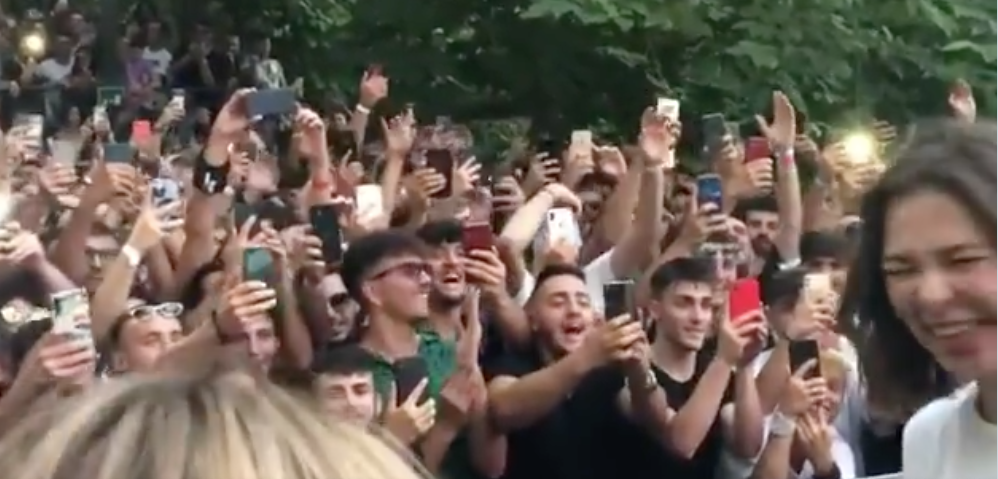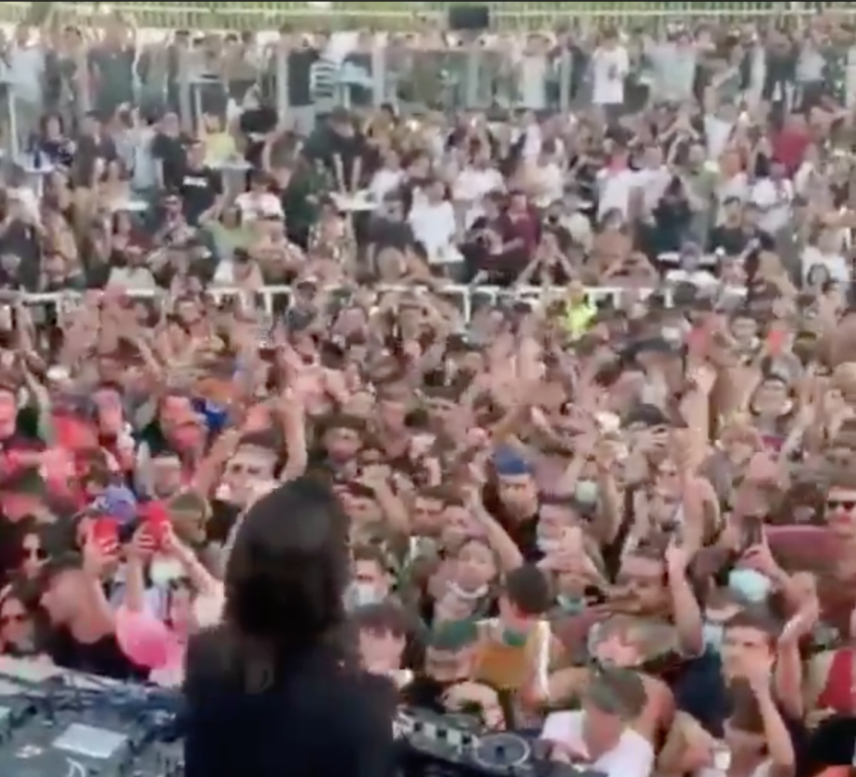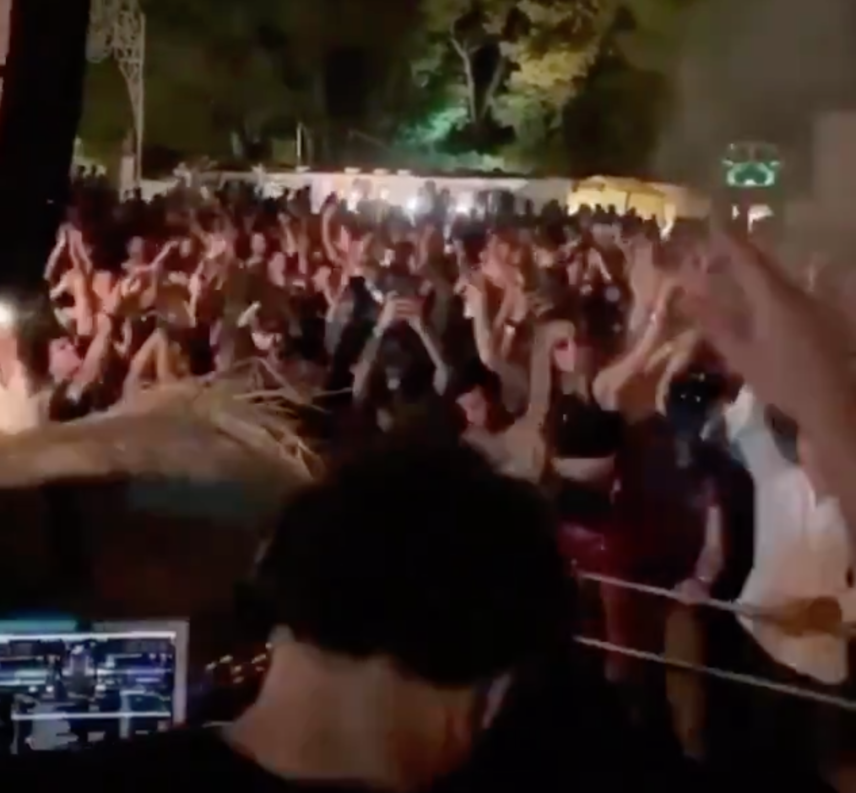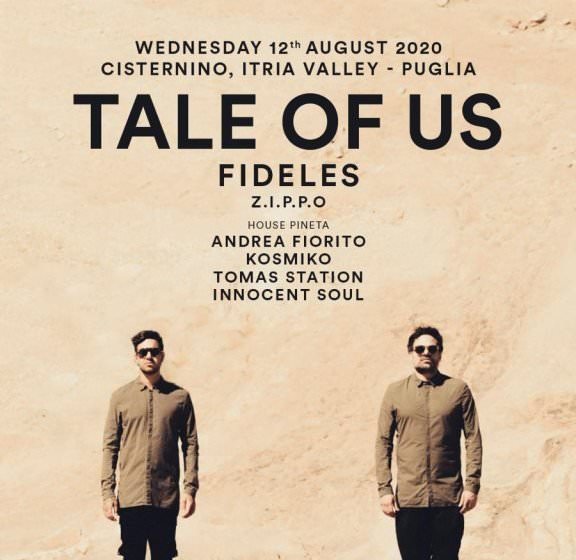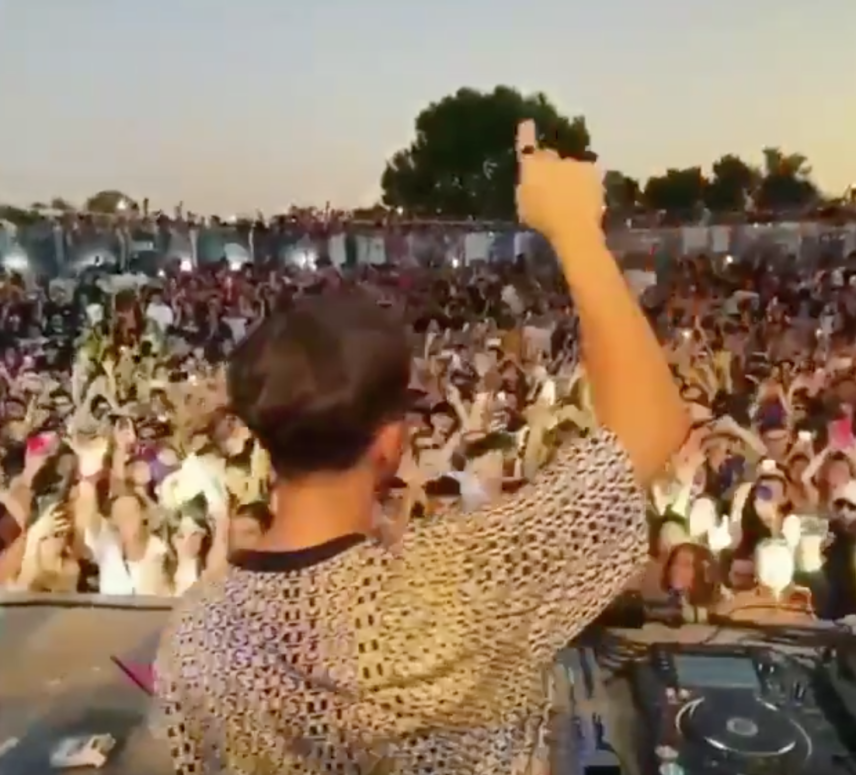As clubs in Italy and Spain close again amid rising COVID infections, Harold Heath wonders if it might be time for DJs and club culture to show some responsibility?
The sound of the summer this year hasn’t been some super-fresh beat or a catchy ear-worm song from the clubs of Ibiza and the festivals of Croatia. The sound of this summer has been plague rave footage played on phones. The last few weeks have seen a sharp rise in legal raves and parties in Europe, where high-level DJs have been playing to packed venues, with no social distancing or masks, in countries that had high rates of COVID infection. These events are now perhaps inevitably coinciding with a corresponding rise in COVID cases, to the point where Spain and Italy have closed all clubs, venues and party spaces with immediate effect. What’s even more worrying is that Reuters has reported that in Italy the median age of people infected has now dropped below 40 – more younger people are developing the virus.
There’s clear anti-plague rave sentiment online from those who fear the increased infection rates and despair at the apparent selfishness of those high-earning DJs currently playing to several thousand kids, all squashed up against each other for hours, getting out of breath as they jump around, breathing right in each other’s faces. In addition, there’s plenty of ire directed at event attendees who then return to their families and communities, presumably to spread the virus to those less able to deal with it.
While these DJs play music of Black origin, this is a pandemic that is disproportionately killing Black people
A particularly contentious issue is the stature of the DJs who are playing at these events; these are people who earn a substantial amount of money for their appearances – and there’s a general feeling that of all the people in the clubland food chain, these are the least likely to actually need the money, that surely they could have waited a few more months and then perhaps indirectly fewer people would catch the virus. Furthermore, there’s a class element to this too: the actions of the richest 1% of DJs are now directly affecting the livelihoods of smaller DJs who will be unable to return to work as their countries head back into lockdown.
And more tragically still, let’s not forget that while these DJs play music of Black origin, this is a pandemic that is disproportionately killing Black people.
But we all miss clubs right? Do you remember the last time you went out dancing with your mates, before lockdown? Bet you wish you’d stayed longer. And for many DJs, it’s been a living nightmare, as their earnings have dropped to zero and their livelihood has simply disappeared. Many have already found new positions outside the music industry entirely because hey, people gotta eat.
And it’s not just the DJs that are in trouble – it’s also their managers, their agents, their drivers; and then of course there are club promoters, bar staff, the backline staff, security, the whole night club foodchain are currently struggling. Because these events aren’t one-person shows, there’s a whole team involved in putting on a club night. And all these people are finally getting some paid work, that has to be a good thing right?
And what about the DJs right to earn a living? It’s a fact that all the events we’re talking about here were completely legal. And if it was legal, and if DJs have a right to earn, then what’s wrong with playing a few parties if everyone involved knows the risks?
Well the answer is, unfortunately, a dramatic one; what’s wrong with these events is that they might cause someone to die, who otherwise wouldn’t. This is the terrible, tragic truth at the heart of the matter. Preventable deaths. Family members who will go to their graves earlier than they would have otherwise. That’s the cost. It’s an extraordinarily high price to pay for a few hours at a party.
That’s the stark, grown-up, reality here. And yes, there were no legal barriers to these events, but are we saying that makes it ok? It used to be legal to put gay people in prison simply for being gay – in some countries, this is still the case. Is the law always right or is there a higher level of personal ethics that overrides it? Simply arguing that these events are legal so therefore ok ignores the reality of what is actually happening here.
DJs have a choice to take those shows or not. Promoters have a choice, DJ agents have a choice. And if that choice is being made purely on financial grounds – with no regard for safety or the possibility of causing untimely deaths – then I simply can’t square this with what I feel is the ethos of the house and techno scene – egalitarianism, tolerance and above all, community.
The actions of the richest 1% of DJs are now directly affecting the livelihoods of smaller DJs
It’s telling how little actual dancing there is in this latest rash of videos; these events are so very far removed from a genuine underground rave, and that’s the problem. These aren’t community-led parties, groups of mates getting together to share music and dance together. These aren’t true club nights; the audience doesn’t seem to realise that what they’re watching is descended from parties where people actually danced all night. This isn’t that. This is commerce. But it’s commerce that will negatively impact the DJs, promoters and dancers of our actual, genuine house and techno culture.
So do I have any solutions? On Twitter, DJ Terry Farley suggested a DJ wage cap – perhaps a £5000 cap for headliners with up to £1000 for anyone else on the bill. This might mean that some venues could actually afford to open up at the vastly reduced capacity that needs to be the current safe norm and still take some money. People could get out of their houses, see some other folk, hear some music. It would put at least some of the nightlife foodchain back to work, get some people putting some money into the economy. And it would allow some DJs to earn and some new tunes to get played.
It’s far from ideal but then these are far from ideal times; and at least it would be much less likely to cause the actual death of actual human beings.
With thanks to the Business Teshno Twitter account whose excellent work cataloguing the recent rave events helped make this column possible.
Harold Heath is on Twitter.
You currently have an ad blocker installed
Attack Magazine is funded by advertising revenue. To help support our original content, please consider whitelisting Attack in your ad blocker software.
x
